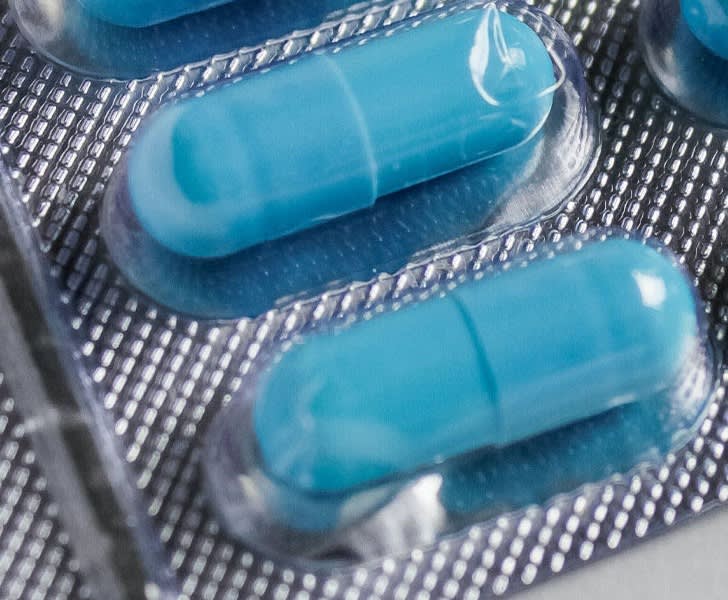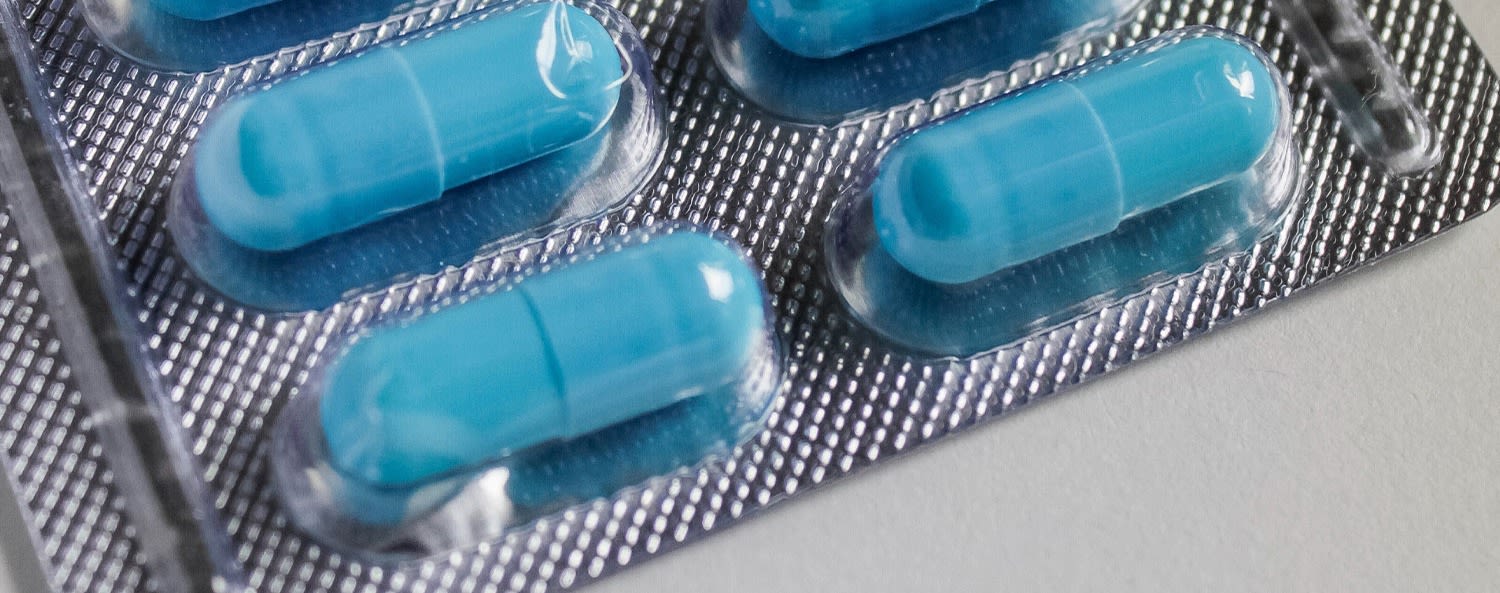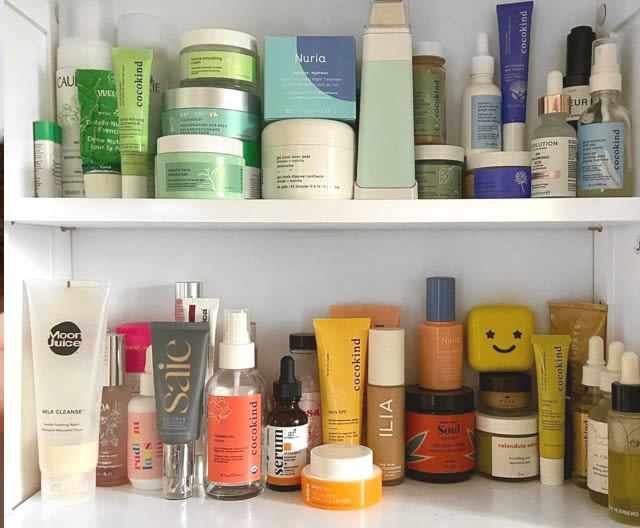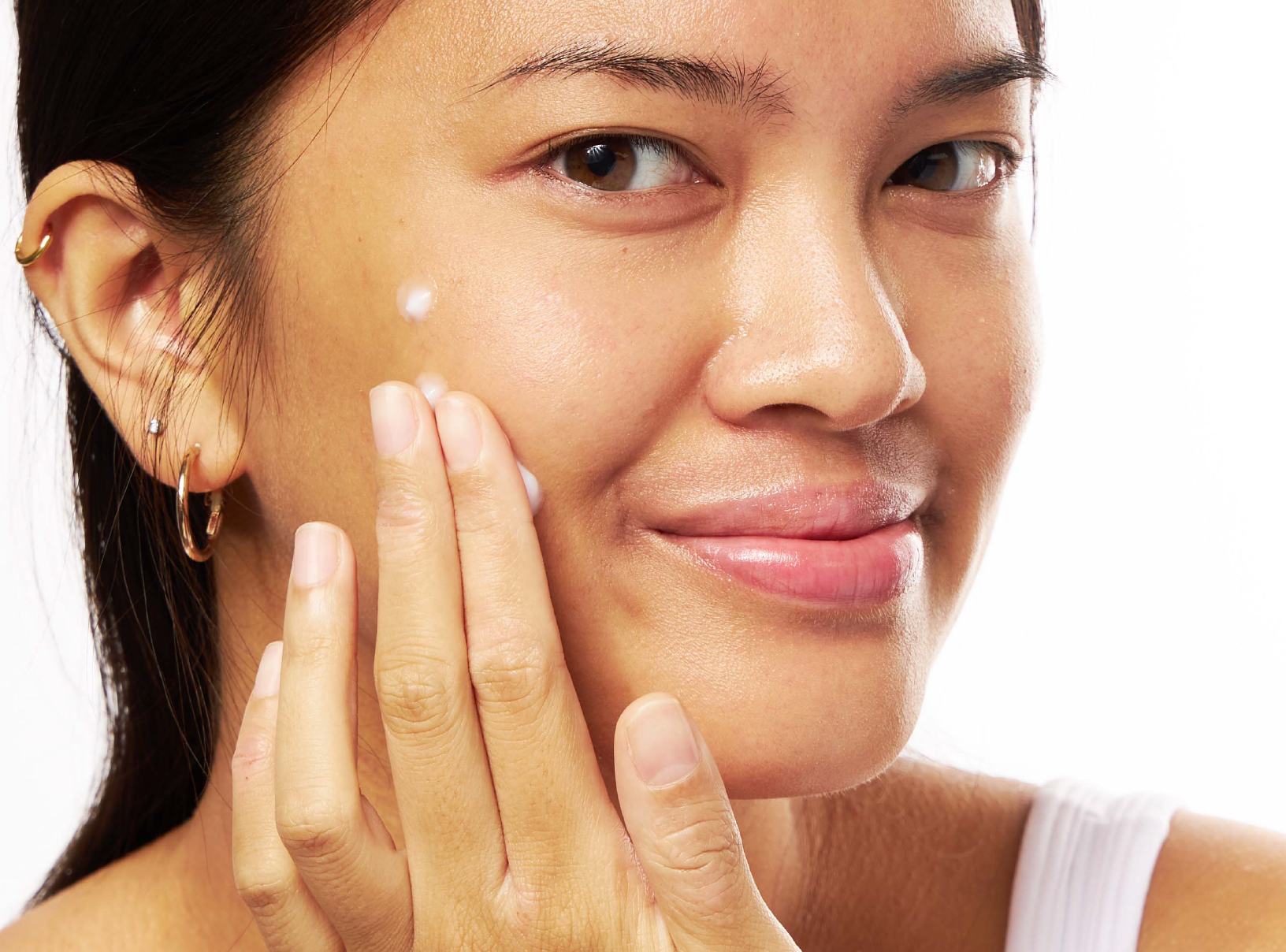Deep Dives
Prescription vs. OTC: Acne Treatment


SHARE
Deep Dives
Prescription vs. OTC: Acne Treatment
Medically reviewed by Aimee Paik, MD
Written by Apostrophe Team
Last updated 4/5/2024
When it comes to acne treatments, your local drugstore has hundreds of options. Cleansers, spot treatments, lotions, and masks are just a few of the choices for treating everything from the occasional pimple to full-blown acne. But are these products hiding behind empty marketing claims? How do they stand up to the prescription strength treatment you can get from a derm? We are giving you the inside scoop so you know how to make informed decisions in the acne aisle and when to see a doctor.
Prescription strength products
There’s a reason you go see a doctor when you’re sick: they have the best, most effective medicine! Treatment for your skin is no different. Prescription acne medication you get from a dermatologist is more powerful with higher concentrations of active ingredients than anything you can purchase over the counter.
Prescription topical treatments
Topical antibiotics – Antibiotics don’t always come in capsules or tablets – you can also get them as gels or lotions! Clindamycin is an antibiotic used to treat a number of different infections, but it is commonly prescribed topically to treat acne. It can also be combined with tretinoin or benzoyl peroxide for an extra acne-fighting boost.
Retinoids – Prescription retinoids like tretinoin are far more effective than the retinol products you can purchase at drug and beauty stores. The difference with prescription is the active ingredient, usually tretinoin, is at a higher strength that you can only get through a pharmacy. Topical retinols are over-the-counter or prescription creams, lotions and gels containing medicine derived from vitamin A. These compounds result in smoother, plumper, and more radiant skin and are often found in “anti-aging” skincare products.
Azelaic acid – Azelaic acid is a natural material produced by a yeast that lives on normal skin, Malassezia furfur (also known as Pityrosporum ovale). It is used as a topical treatment for mild to moderate acne, and may be combined with oral antibiotics or hormonal therapy. It is useful for both comedonal acne and inflammatory acne and has the additional benefit of being safe for use during pregnancy. It is available in over-the-counter products, but it can be obtained in higher concentrations that require a prescription.
Hydroquinone – Hydroquinone is a skin lightening agent that can be used to treat most skin issues related to hyperpigmentation. That means dark marks from acne, as well as melasma or age spots. Like azelaic acid, you can find hydroquinone in over-the-counter products, but a hydroquinone prescription written by a doctor or healthcare provider will include a higher concentration of the ingredient that will likely be more effective.
Prescription oral treatments
Spironolactone – Spironolactone is an androgen receptor antagonist often prescribed to treat hormonal acne in women. Simply put, it blocks the effects of androgens, like testosterone, on the body. Although these anti-androgenic effects means it is rarely prescribed for acne in cis-men, spironolactone in cis-women can have the result of decreasing sebum production caused by androgens. You can learn more about the science behind spironolactone on Slather!
Oral antibiotics – Antibiotics can be an invaluable tool in your battle against acne (dermatologists sometimes prescribe doxycycline or minocycline for acne, depending on the severity of the case). They are typically prescribed for a short period of time (often three to six months) to help give your skin an initial headstart and give other topical or oral treatments a chance to kick in. Contrary to their name, antibiotics primarily work to treat acne by reducing inflammation in the skin. Killing acne-causing bacteria is a secondary effect.
Over-the-counter products
Over-the-counter medicines and treatments include anything and everything you can purchase at your local drugstore, Sephora, or Ulta. These products often contain tried and true acne-fighting ingredients like benzoyl peroxide or salicylic acid, but they also often contain unproven, trendy ingredients like charcoal. Here’s what works, and what doesn’t.
Backed by science
Benzoyl peroxide – Benzoyl peroxide is a common topical treatment for acne. It comes in creams, gels, and washes and is often used in conjunction with antibiotic treatment to reduce the risk of creating antibiotic-resistant bacteria (benzoyl peroxide itself cannot create resistant bacteria). It has antiseptic, oxidizing, and anti-inflammatory properties.
Salicylic acid – In acne, topical salicylic acid helps slow down shedding of the cells inside the follicles, preventing clogging. Salicylic acid also helps break down blackheads and whiteheads and is a type of beta hydroxy acid (BHA).
Tea tree oil – Tea tree oil comes from the leaves of Melaleuca alternifolia, a tree native to Australia. It’s benefits primarily come from its antimicrobial properties and it has been shown in study after study to be effective against mild to moderate acne. It is important to note that tea tree oil acts differently on the skin than most other oils named in this resource. Tea tree’s powerful antimicrobial effects can cause drying and irritating effects, especially on sensitive skins, so it is best to do a patch test before using and we recommend avoiding using undiluted tea tree oil directly on the skin.
Just marketing
Charcoal – The idea behind using charcoal as an acne treatment is that charcoal will bind to dirt and oil in your pores and lift it out of your skin. While charcoal is harmless as an ingredient, and rarely causes allergic reactions, there are not any scientific studies that support its use as an effective treatment for acne.
Snail slime – Snail slime, or snail mucin, has become a trendy ingredient in many masks and creams, particularly on the K-beauty scene. Companies claim that it boosts collagen production, fights wrinkles, helps reduce redness, and calms acne. While there are limited studies on snail slime’s ability to heal wounds and warts, none of the products on the market have been tested for their efficacy against acne.
Witch hazel toner – Witch hazel toner acts as a natural anti-inflammatory (it’s actually a common hemorrhoid treatment) and antiseptic. It is effective at removing oil from the skin, but this quality also causes witch hazel to be quite drying. Use caution when using this product and make sure that any witch hazel products you use don’t also include alcohol (way too harsh on your skin!).
Remember: if you’ve tried over-the-counter acne products and you aren’t getting the results you want, getting started on a virtual derm visit with Apostrophe is just a few clicks away. We know dealing with acne can be frustrating and draining. Getting an acne treatment plan straight from a dermatology team is the best way to access medications you know are effective and backed by science.
What’s your favorite acne treatment? Have a prescription product that beat your acne? Tell us on Twitter @hi_apostrophe, or email us at [email protected].
Like what you just read? Sign up for our email list to get the scoop on skincare science delivered straight to your inbox.

Education
What is milia?
What is milia? Today, we’re jumping into one type of bump that you may have heard about most commonly in infants — milia.
Read More
Education
Best moisturizer for acne-prone skin
If you have combination acne-prone skin, figuring out which moisturizer is best for your skin might be tough. In this guide, we break down the best moisturizer for combination, acne-prone skin.
Read More
Education
How to build a face care routine
As you get into skincare, it might seem overwhelming, especially trying to figure out the order you're supposed to apply products in. Below, we detail how to build a face care routine for your skin!
Read More
